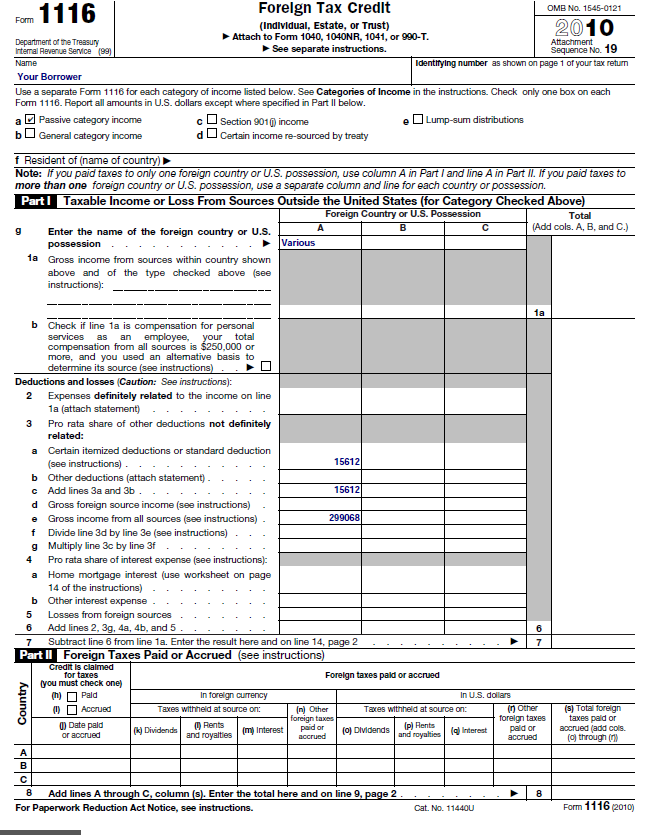Your question:
We have a prospect for a loan that we will broker. Per the lender, this couple live in another country, both work for foreign companies and both receive wages
from these various foreign companies. The borrower provided Form 1116 that shows gross income from all sources of $96K in 2009 and $299K in 2010. Should we be giving the
borrower credit for this foreign income earned?
Linda says:
Just because the $299K is listed on the Form 1116 does not mean it is foreign source income. Here is how it works.
Foreign source income is taxable income
First of all, yes, foreign source income of U.S. Citizens living and working abroad is taxable. And in fact, if you have the 1040, it should be listed as if it were earned in the United States. Wages on Line 8, Rentals on the back-side of the Schedule E…
If you want to know which of that income is foreign source you have two possibilities:
- Form 2555 if they have taken the foreign income exclusion
- Form 1116 if they have taken the foreign income tax credit
I have reproduced the Form 1116 you sent me. Click on it to enlarge.
What, no foreign source income?
As often happens when doing cashflow analysis of tax returns for lending purposes, you first have to figure out what the form is really telling you. It sounds like your lender did not look quite close enough.
So first I’ll answer the question you did not ask.
Where do I find foreign source income on the Form 1116?
It will be listed on Line 1a. The amount you mentioned in your question, $299K in 2010, is on Line 3e which is Gross Income from all sources, foreign and U.S. I am not sure why this borrower included the Form 1116 with the 2010 return when they had no foreign source income, but since they did have some in 2009 (from the return you also sent) perhaps that is why.
So in this case you can get back to your lender and confirm there was no foreign source income in 2010. Just to check, I added the wages, interest, SCorp pass-through and a small miscellaneous income item on 1040 Line 21 and sure enough, they added up to the $299K
But what if they DID have foreign source income?
It is a matter for your guidelines, or your lenders guidelines when selling a loan, whether to include foreign source income. If that is an issue, I’d get more information.
- Does the restriction on foreign source income include all foreign source income or do they allow wages but not business, or wages but not rental income?
- If the borrower has returned to the United States and their most recent year’s U.S. income is consistent with the foreign source income of the prior year, can you count the foreign source income in your two- or three-year average?

